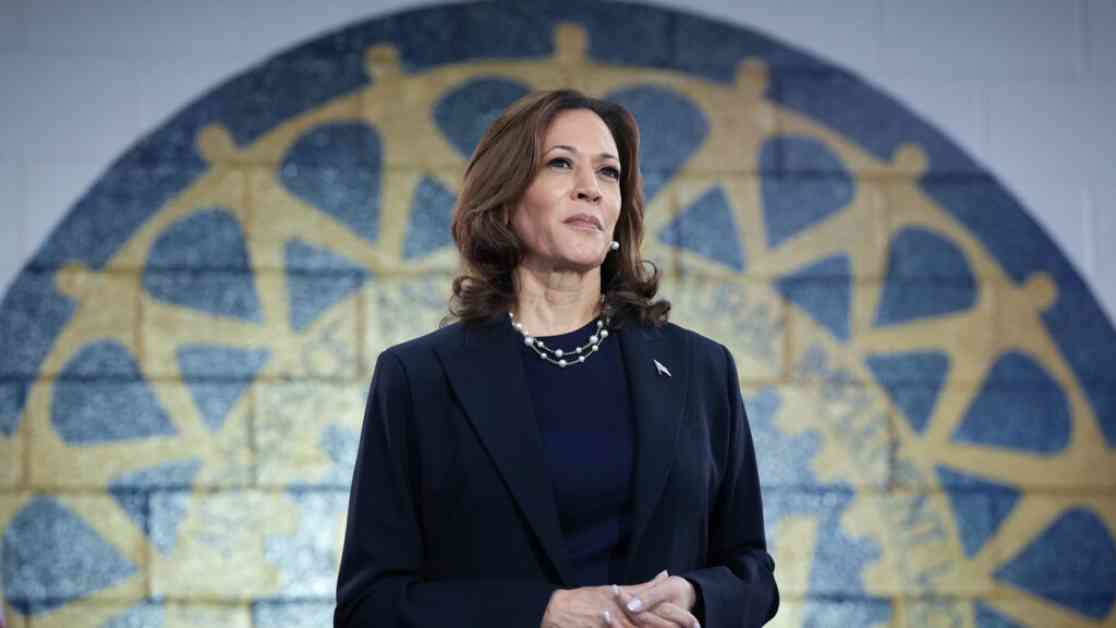Health Tech Leaders Taking Stance in Presidential Race
In a surprising turn of events, Silicon Valley startup founders and venture capital investors are publicly declaring their support for either President Donald Trump or Vice President Kamala Harris in this year’s presidential race. This departure from the industry’s historically apolitical stance is raising eyebrows and sparking debate within the tech community.
Venture titans Marc Andreessen and Ben Horowitz made headlines in July when they announced their support for Donald Trump, citing his policies as more favorable for startups and less likely to overregulate technologies like artificial intelligence. On the other side of the spectrum, a group called “VCs for Kamala” has gained over 800 signatories in recent weeks, including well-known investors like Mark Cuban, Vinod Khosla, and John O’Farrell from Andreessen Horowitz.
The divide is becoming even more pronounced as more tech leaders publicly declare their allegiance to either Trump or Harris. Just last week, over two hundred women, many from digital health companies or venture firms, signed a public letter asserting that Harris is the better choice for women’s health issues. They argue that Harris is more likely than Trump to support women’s reproductive rights, preserve access to abortion and in vitro fertilization, and advocate for programs like Medicare and Medicaid.
The decision to publicly support a political candidate is a risky move for these health tech leaders, as it could alienate customers, employees, and investors who may not share their political views. However, these individuals are willing to take that risk in order to advocate for the policies and values they believe will benefit their industry and society as a whole.
The Case for Trump
For supporters of President Trump in the health tech industry, his policies on deregulation and support for innovation are key factors in their decision to back his re-election bid. Trump’s administration has rolled back regulations that were seen as hindering the growth of startups, particularly in the field of artificial intelligence. This deregulatory approach is appealing to tech leaders who believe that innovation should not be stifled by government intervention.
Additionally, Trump’s stance on taxes and economic policies has been praised by some in the tech community. His tax cuts and incentives for businesses are seen as beneficial for startups and venture capital firms looking to grow and invest in new technologies. Trump’s “America First” agenda resonates with those who prioritize domestic innovation and job creation.
Supporters of Trump also point to his administration’s efforts to expand telehealth services and improve access to healthcare through initiatives like the Right to Try Act, which allows patients with life-threatening illnesses to access experimental treatments. These actions are seen as positive steps towards improving healthcare outcomes and fostering innovation in the industry.
The Case for Harris
On the other side of the political spectrum, supporters of Vice President Kamala Harris in the health tech industry are drawn to her commitment to advancing women’s health issues and promoting access to healthcare for all Americans. Harris has a track record of advocating for reproductive rights, including access to abortion and in vitro fertilization, which resonates with many women in the tech community.
Harris’s support for programs like Medicare and Medicaid, as well as her efforts to address healthcare disparities and improve access to affordable care, are also seen as important factors in her favor. Her emphasis on expanding healthcare coverage and protecting patients with pre-existing conditions aligns with the values of many in the health tech industry who prioritize improving healthcare outcomes for all individuals.
Supporters of Harris also highlight her plans to address the opioid crisis, mental health issues, and other healthcare challenges facing the nation. Her proposals for increasing funding for mental health services, expanding access to addiction treatment programs, and supporting mental health parity laws are seen as crucial steps towards improving the overall health and well-being of Americans.
Conclusion
The decision by health tech leaders to publicly support either President Trump or Vice President Harris in the upcoming presidential race reflects a growing trend of political activism within the industry. These individuals are willing to take a stand on important issues like innovation, healthcare access, and women’s rights, even if it means potentially facing backlash from some stakeholders.
As the election draws closer, it will be interesting to see how these endorsements impact the health tech industry and whether they will influence the outcome of the race. Regardless of the results, one thing is clear: the tech community is no longer content to remain silent on political matters and is actively engaging in the democratic process to advocate for the policies and values they believe will shape the future of their industry and society.


















